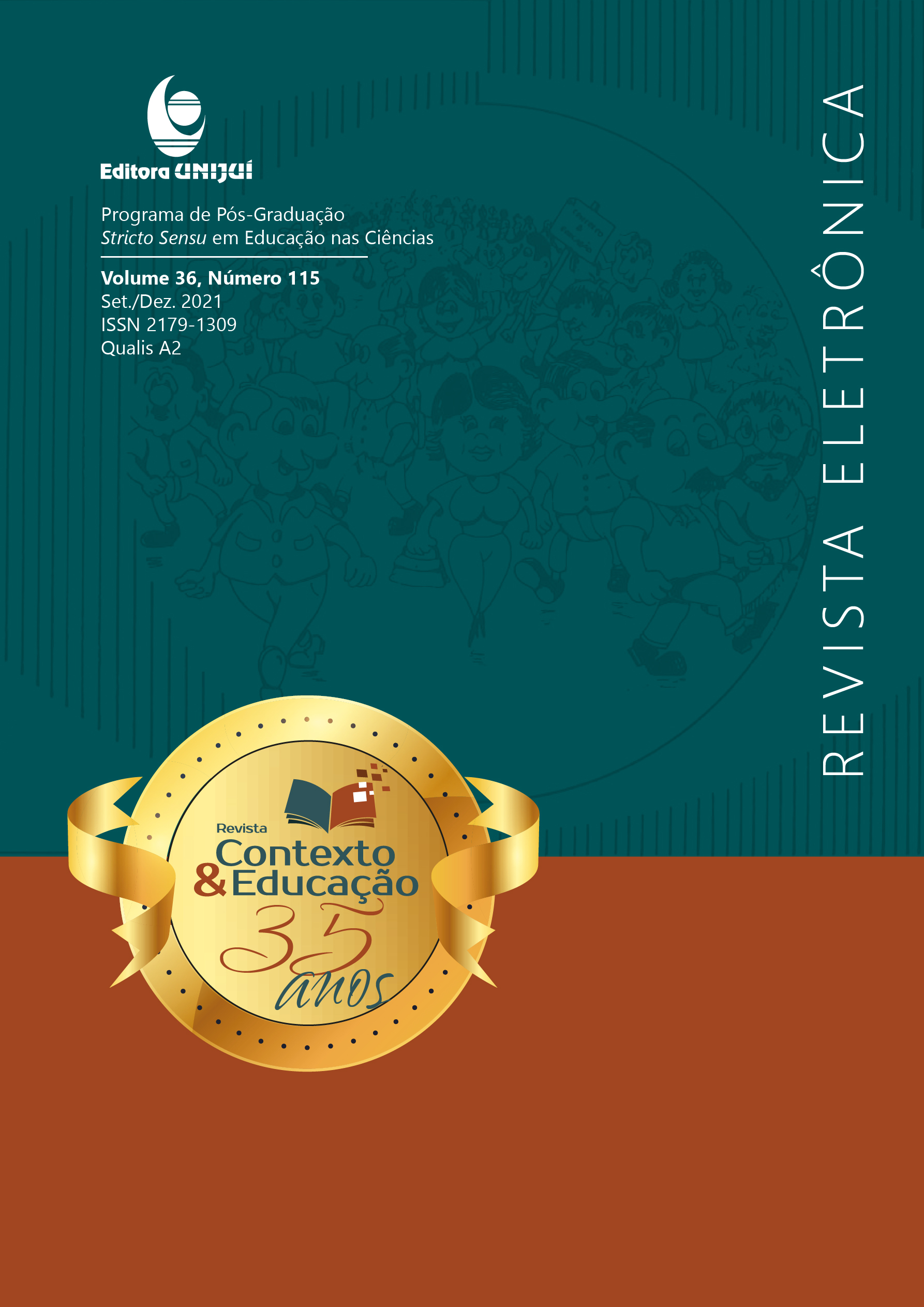AS TENDÊNCIAS CURRICULARES NA DÉCADA 1970 E O CASO DO PROJETO LOGOS II
CURRICULAR TRENDS IN THE 1970S AND THE CASE OF THE LOGOS II PROJECT
DOI:
https://doi.org/10.21527/2179-1309.2021.115.10440Palavras-chave:
História da Educação. Formação de Professores. Ensino profissionalizante.Resumo
Entre as décadas de 1970 e 1990 foi desenvolvido em algumas regiões do Brasil um projeto de formação de professores não-titulados denominado Logos II. O programa adotava a tecnologia educacional do ensino a distância via modular. A grade curricular do Logos II continha 28 disciplinas, divididas em duas categorias (Geral e Especial) que após concluir seus estudos proporcionava ao professor-cursista habilitação do magistério em nível de 2º grau. Assim, o artigo em tela tem como objetivo elaborar uma história do currículo na década de 1970 partindo da análise do currículo do projeto Logos II. Além disso, evidenciaremos, os conceitos da educação tecnicista que estruturaram o currículo brasileiro, e consequentemente a estrutura curricular do Projeto Logos II. Como fontes foram utilizados os documentos relacionados ao projeto Logos II assim como as legislações e outros documentos que se relacionam com a temática. Como referencial teórico-metodológico utilizamos o conceito de currículo de Goodson (2012) e a compreensão de análise de fonte históricas de Ginzburg (1989; 2008) e Pesavento (2008). Os resultados indicam que na época de implantação do projeto, o currículo brasileiro recebeu grandes influências internacionais, devido aos acordos bilaterais que marcaram a construção da grade curricular Logos II.
Downloads
Publicado
Como Citar
Edição
Seção
Licença
Ao publicar na Revista Contexto & Educação, os autores concordam com os seguintes termos:
Os trabalhos seguem a licença Creative Commons Atribuição 4.0 Internacional (CC BY 4.0), que permite:
Compartilhar — copiar e redistribuir o material em qualquer meio ou formato;
Adaptar — remixar, transformar e criar a partir do material para qualquer fim, inclusive comercial.
Essas permissões são irrevogáveis, desde que respeitados os seguintes termos:
Atribuição — os autores devem ser devidamente creditados, com link para a licença e indicação de eventuais alterações realizadas.
Sem restrições adicionais — não podem ser aplicadas condições legais ou tecnológicas que restrinjam o uso permitido pela licença.
Avisos:
A licença não se aplica a elementos em domínio público ou cobertos por exceções legais.
A licença não garante todos os direitos necessários para usos específicos (ex.: direitos de imagem, privacidade ou morais).
A revista não se responsabiliza pelas opiniões expressas nos artigos, que são de exclusiva responsabilidade dos autores. O Editor, com o apoio do Comitê Editorial, reserva-se o direito de sugerir ou solicitar modificações quando necessário.
Somente serão aceitos artigos científicos originais, com resultados de pesquisas de interesse que não tenham sido publicados nem submetidos simultaneamente a outro periódico com o mesmo objetivo.
A menção a marcas comerciais ou produtos específicos destina-se apenas à identificação, sem qualquer vínculo promocional por parte dos autores ou da revista.
Contrato de Licença (para artigos publicados a partir de outubro/2025): Os autores mantém os direitos autorais sobre seu artigo, e concedem a Revista Contexto & Educação o direito de primeira publicação.


